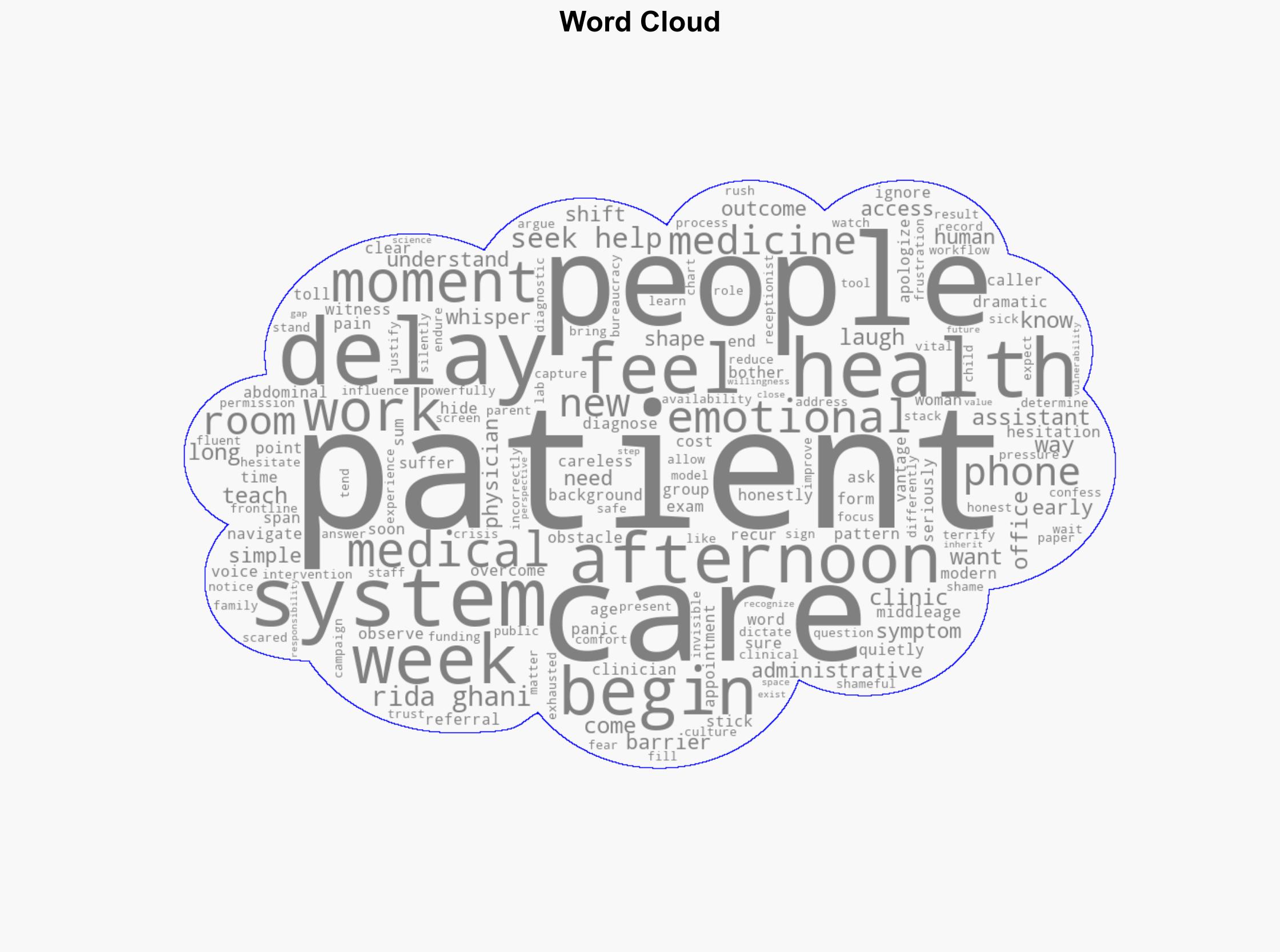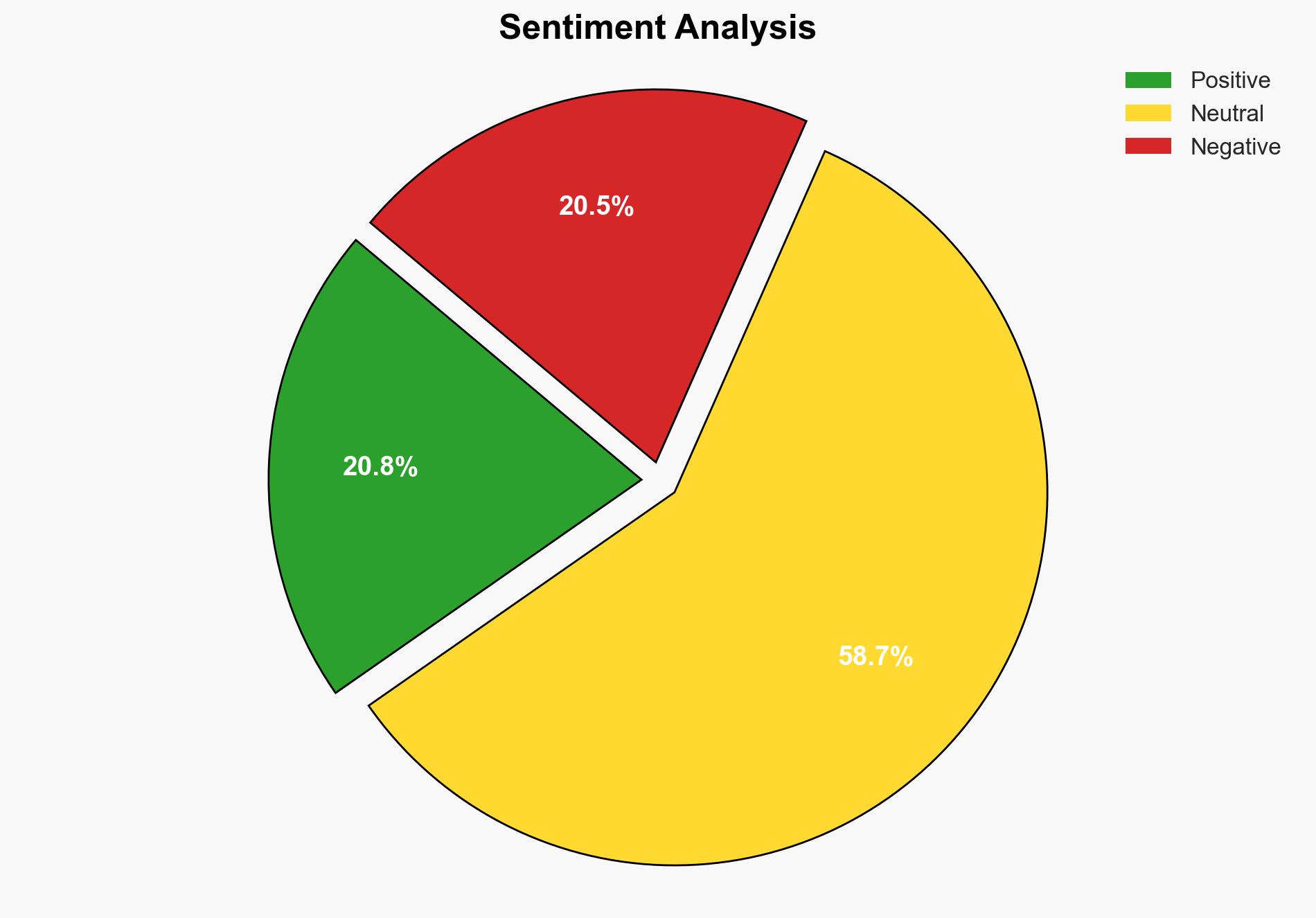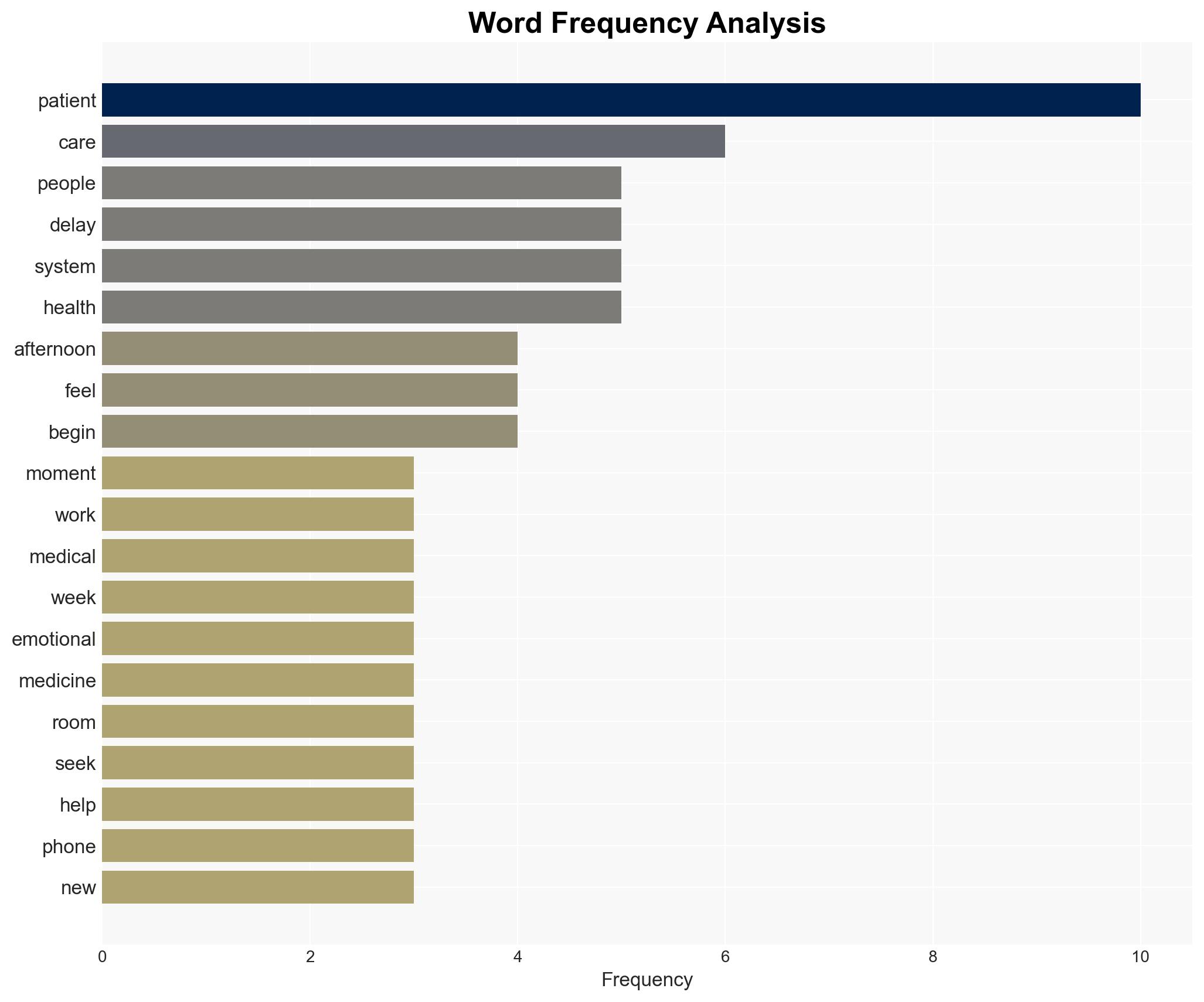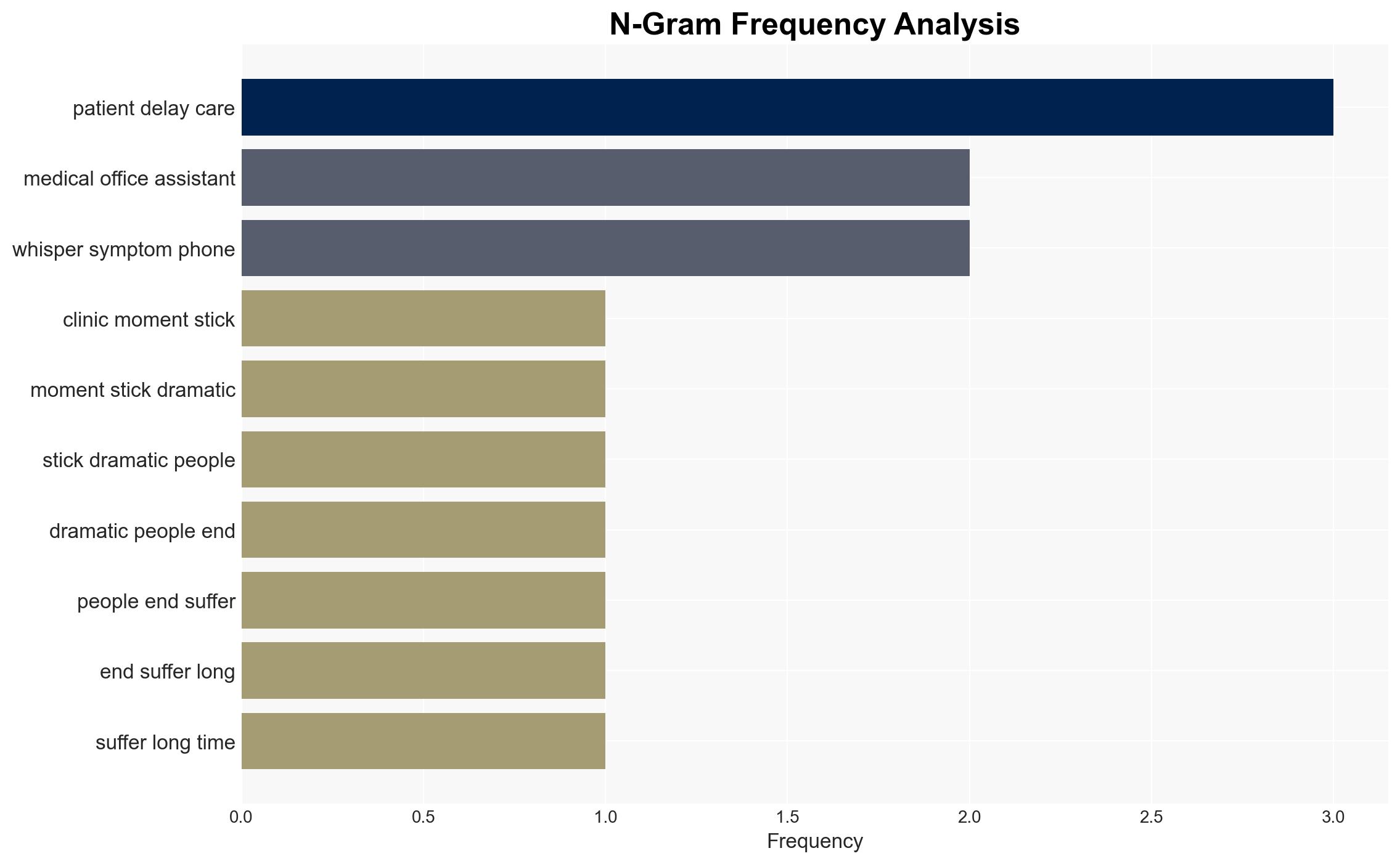Why patients delay seeking care – Kevinmd.com
Published on: 2025-11-17
AI-powered OSINT brief from verified open sources. Automated NLP signal extraction with human verification. See our Methodology and Why WorldWideWatchers.
Intelligence Report:
1. BLUF (Bottom Line Up Front)
The most supported hypothesis is that systemic barriers and cultural factors within healthcare systems significantly contribute to patients delaying care. Confidence Level: Moderate. Recommended action includes enhancing patient education, simplifying administrative processes, and fostering a more empathetic healthcare environment to reduce delays in seeking care.
2. Competing Hypotheses
Hypothesis 1: Systemic and cultural barriers within healthcare systems are the primary reasons for patients delaying care. This includes complex administrative processes, lack of appointment availability, and a healthcare culture that may not prioritize patient comfort and understanding.
Hypothesis 2: Personal factors such as individual patient attitudes, fear of diagnosis, or financial concerns are the primary reasons for delaying care. These factors may include a reluctance to confront potential health issues or the perceived cost of healthcare services.
Hypothesis 1 is more likely due to the consistent observation of systemic issues across various patient interactions, as noted in the source text. While personal factors are significant, the structural and cultural elements of healthcare systems appear to have a broader impact on patient behavior.
3. Key Assumptions and Red Flags
Assumptions: It is assumed that the observations made by the medical office assistant are representative of broader trends across healthcare systems. Another assumption is that systemic barriers are more influential than personal factors in delaying care.
Red Flags: Potential bias in the anecdotal evidence provided by a single medical office assistant. The lack of quantitative data to support the claims made in the source text is a significant gap.
4. Implications and Strategic Risks
Delays in seeking care can lead to worsened health outcomes, increased healthcare costs, and greater strain on emergency services. If systemic barriers are not addressed, there is a risk of escalating public dissatisfaction with healthcare systems, potentially leading to political pressure for reform. Additionally, misinformation or lack of information about healthcare processes can exacerbate these issues.
5. Recommendations and Outlook
- Implement patient education programs to demystify healthcare processes and reduce fear and hesitation.
- Simplify administrative procedures to make the healthcare system more accessible and less intimidating.
- Encourage a cultural shift within healthcare institutions to prioritize patient comfort and understanding, potentially through staff training and policy changes.
- Best-case scenario: Improved patient outcomes and satisfaction due to reduced delays in seeking care.
- Worst-case scenario: Continued patient delays leading to increased morbidity and healthcare costs.
- Most-likely scenario: Incremental improvements in patient engagement and healthcare access as systemic barriers are gradually addressed.
6. Key Individuals and Entities
Rida Ghani, Medical Office Assistant
7. Thematic Tags
Cybersecurity, Healthcare Systems, Patient Behavior, Administrative Barriers, Cultural Factors
Structured Analytic Techniques Applied
- Adversarial Threat Simulation: Model and simulate actions of cyber adversaries to anticipate vulnerabilities and improve resilience.
- Indicators Development: Detect and monitor behavioral or technical anomalies across systems for early threat detection.
- Bayesian Scenario Modeling: Quantify uncertainty and predict cyberattack pathways using probabilistic inference.
- Narrative Pattern Analysis: Deconstruct and track propaganda or influence narratives.
Explore more:
Cybersecurity Briefs ·
Daily Summary ·
Support us
·





